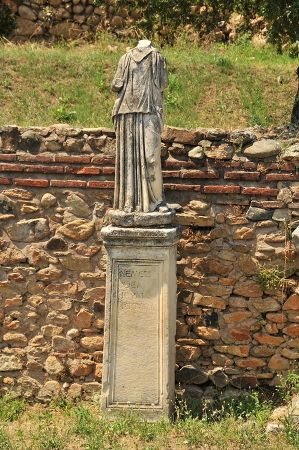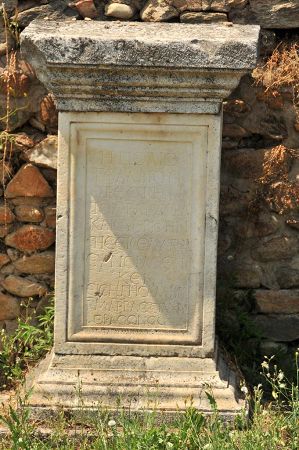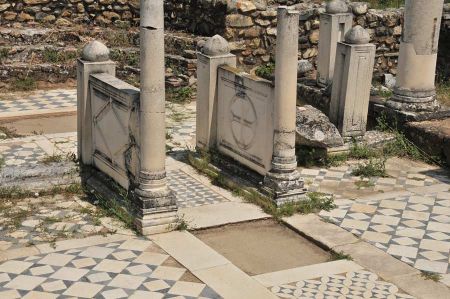Heracleia Lyncestis - a day trip to Bitola
- Written by Portal Editor
We had to postpone the planned day trip from Ohrid to Bitola several times, now finally it happened. With nearly 75,000 inhabitants Bitola is the second largest city in Macedonia today.
And is the administrative, economic, cultural and political center in the southern part of Macedonia. It was already comparable in the past, because in ancient times, the region was first inhabited by the Illyrians and after its demise as an ethnic group or their expulsion by the Macedonian King Philip II, father of Alexander the Great, who first conquered and then populated the ancient Macedonians into the country. So the real goal of our day's journey to the modern city of Bitola is going to the ancient ruined city Heracleia Lyncestis, founded 359-356 BC by Philip II.
Under the Romans it was expanded into the important Via Egnatia

In several campaigns Philip II had tried to expel the Illyrians, because the environment was suitable and excellent to operate agriculture at Lyncestos. Just because of his modern war machinery Philip II finally succeeded, the area was firmly affixed to Macedonia. The structure of Heracleia Lyncestis strengthened at the same time the position of power of Philips II, which then was expanded by his son Alexander the Great to a first world empire.
In gratitude for their service in the army

During excavations in the thirties of the last century, then later between 1960-1964 and 1970-1975 parts of the fortified acropolis, the theatre, the baths, two basilicas with late antique mosaics and the remains were uncovered like some private houses. The minor basilica and the associated baptistery were partially restored, like the remains of houses from the Hellenistic period. Most finds from Heracleia Lyncestis now preserved and exhibited in the Museum of Bitola.
To avoid weather influences
Both in the great basilica and in other buildings, some of the mosaic surfaces are disclosed during the summer months, so the visitors can consider them extensively. In the harsh winter months, all mosaic surfaces are strewn with gravel to prevent weathering.
Mostly religious motives, which are also known from other regions of early Christianity, form the enclosure for hunting and animal motifs of incredible splendour and wealth.
The faces are amazing because what laborious stone setting work was necessary to create this mosaic diversity.
But couple of minutes later, when we were looking at some artefacts at Museum between the basilica and the theatre, the young man started a conversation with us.
Piotr from Gdańsk, as he introduced himself, he arrived from Greece to the ancient ruined city Heracleia Lyncestis by bicycle.
That was the beginning of a pretty intense conversation with mutual understanding, which still should bring a turn in our daily planning later.
In the 4th and 5th centuries, the city was a bishopric already and numerous names of bishops from Heracleia are narrated, who participated in various councils and synods.
472 Heracleia was sacked by the Ostrogoths under Theodoric. This happened again in 479 even though the bishop had tried to ransom the city.
At the turn of the 5th and 6th century, the city was rebuilt, at the end of the 6th century it was occupied by the Slavs, destroyed and then finally abandoned.
Quickly we were involved and almost as quick the afternoon was rescheduled. Both had to be back in a small Macedonian village called Buchin, about 30 kilometres from Bitola.
So we learned Peco, who invited us to his village. He also reported of an ancient bridge, whose origin is still unknown, our interest was twice awakened.
So we took the two a little later towards Buchin, where there was a warm welcome by the parents of Peco.
Coordinates of Heracleia Lyncestis: 41 ° 0 '40 "N, 21 ° 20' 31" E
Please read as well:
Ohrid - lovely city hike with Martha and Luis
Culture Region of Ohrid - the Museum on the Water
-
-
-
-
-
-
-
-
-
-
-
-
-
-
-
